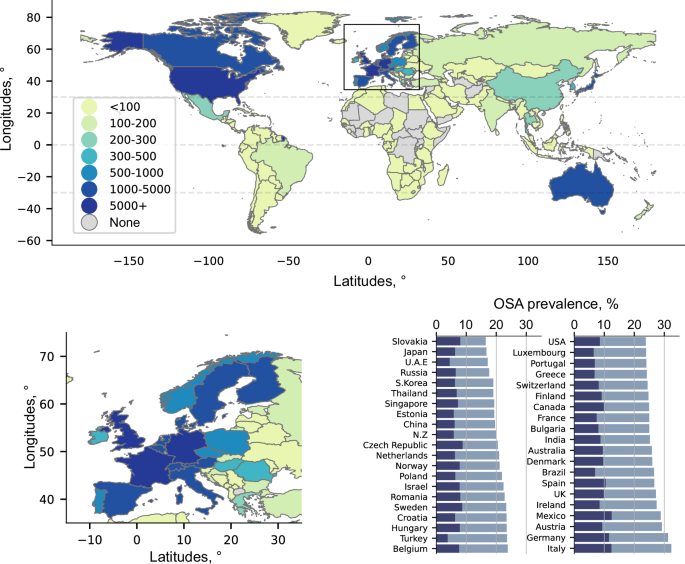Context:
A study, published in the journal Nature Communications, has revealed that warmer temperatures could exacerbate sleep apnea, a common sleep disorder characterized by breathing difficulties during sleep. The research suggests that as global temperatures rise, the prevalence and severity of sleep apnea could increase, impacting health, wellbeing, and the economy.
About Obstructive Sleep Apnoea (OSA):
Obstructive Sleep Apnoea (OSA) is a sleep disorder characterised by repeated interruptions in breathing during sleep due to the collapse or narrowing of the upper airway.
· These interruptions can lead to lower blood oxygen levels, fragmented sleep, loud snoring, and daytime fatigue.
· OSA is also linked to an increased risk of heart disease, stroke, diabetes, depression, and neurodegenerative conditions such as Parkinson’s disease and dementia.

Study Findings:
- Globally, higher temperatures were associated with a 45% higher probability of experiencing OSA on any given night.
- The increased risk was most pronounced in European nations, but countries with lower GDP per capita—including India, Israel, and Brazil—were found to face a greater vulnerability due to limited adaptive infrastructure like air conditioning and healthcare access.
- The study projects that under a climate warming scenario where average global temperatures rise by 1.8°C above pre-industrial levels, the burden of OSA could double by 2100. This includes not just more people developing the disorder but also greater severity in existing cases.
In 2023 alone, the study estimated that climate-exacerbated sleep apnoea was responsible for:
- Loss of 780,000 healthy life years
- 105 million lost workdays across 29 countries
- An economic toll of USD 98 billion, comprising:
- USD 68 billion in wellbeing-related losses
- USD 30 billion in workplace productivity losses
A Looming Public Health Challenge
Poor sleep is often an under-recognised public health issue, yet it is foundational to physical, mental, and cognitive health.
· Cardiovascular Disease: Sleep apnea has been linked to an increased risk of cardiovascular disease.
· Mental Health: Sleep apnea is also associated with mental health conditions, including anxiety, depression, dementia, and Parkinson's disease.
Way forward:
- Climate adaptation measures: Wider access to cooling infrastructure such as air conditioning, especially in vulnerable regions.
- Public health initiatives: Greater awareness, screening, and treatment for sleep apnoea.
- Healthcare investment: Scaling up sleep medicine infrastructure and training, especially in low- and middle-income countries.
- Climate action: Reducing global greenhouse gas emissions to limit warming and associated health impacts.






